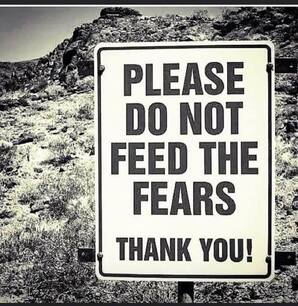Some simple truths about pain
- All pain is real.
- The better you understand pain, the better equipped you are to manage it and change it.
- Pain is an unpleasant physical and emotional biopsychosocial experience with biological, psychological, and social contributors - not just a number on the pain scale or a physical sensation.
- Pain is meant to protect us - telling us something is wrong.
- The pain experience is determined and modulated by the brain, not the body part where it is felt.
- What your doctor or diagnostic test tells you may hurt you. Words matter.
- Sometimes, we can be in pain even when there is no actual threat to the body. Likewise, it's possible to have signs of injury but no pain. We aren't our x-ray.
- There is a difference between short-term acute pain and long-term chronic pain.
- Acute pain is the body's normal response to tissue damage or injury. It is a symptom. The pain matches the damage, and treatment works - generally lasting less than three months.
- Chronic pain is an abnormal response that becomes its own disease/condition and can happen long after an injury or illness heals.
- Chronic pain often has no known biomedical structural cause, like tissue damage, injury, or infection. Nor does it have a biomedical cure. We can't always be fixed with a pill, injection, or surgery.
- The longer we have pain, the less likely it is related to tissue damage or injury, and the better our bodies can learn it and create it - turning up the pain volume. We can become over-sensitized to pain.
- Hurt doesn't always mean harm. Just because you hurt doesn't mean structural or tissue damage is always happening in your body.
- Just treating the pain is not enough. We need to treat the whole person.
- What we think and feel about pain and how we behave affects the pain experience.
- The more we focus on the pain, the worse the pain experience is for us.
- Pain is inevitable, but suffering is optional. Pain is what we feel - it happens to us. Suffering is what we do with pain - we have a choice.
- There is no magical cure for chronic pain.
- Expectations need to change from being pain-free to pain management. It's essential to accept, adjust, and adapt to the pain. Focusing solely on pain reduction, especially elimination, can make it difficult to recover.
- Pain can be modified and controlled by retraining an overprotective nervous system.
- The best treatment for chronic pain is interdisciplinary/transdisciplinary/multidisciplinary care – combining different therapies.
- People living with pain need to take active responsibility to self-manage the pain with support from healthcare professionals - changing from a "patient in pain" to a "person living well, despite the pain."
- Just as we can learn pain, we can unlearn pain.
- Recovery is possible. The pain experience can change, even go away. If it doesn't, we can live well despite the pain.
CHRONIC PAIN CHAMPIONS, LLC AND THIS WEBSITE DOES NOT PROVIDE MEDICAL ADVICE
All information is for educational purposes only. Use at your own risk.
By accessing/using this website and any related pages/information/products/services, you agree to the terms and conditions.
PLEASE SEE THE DISCLAIMER PAGE TO LEARN MORE.
©2024
Chronic Pain Champions, LLC
All rights reserved.
For personal, non-commercial use.
All information is for educational purposes only. Use at your own risk.
By accessing/using this website and any related pages/information/products/services, you agree to the terms and conditions.
PLEASE SEE THE DISCLAIMER PAGE TO LEARN MORE.
©2024
Chronic Pain Champions, LLC
All rights reserved.
For personal, non-commercial use.
